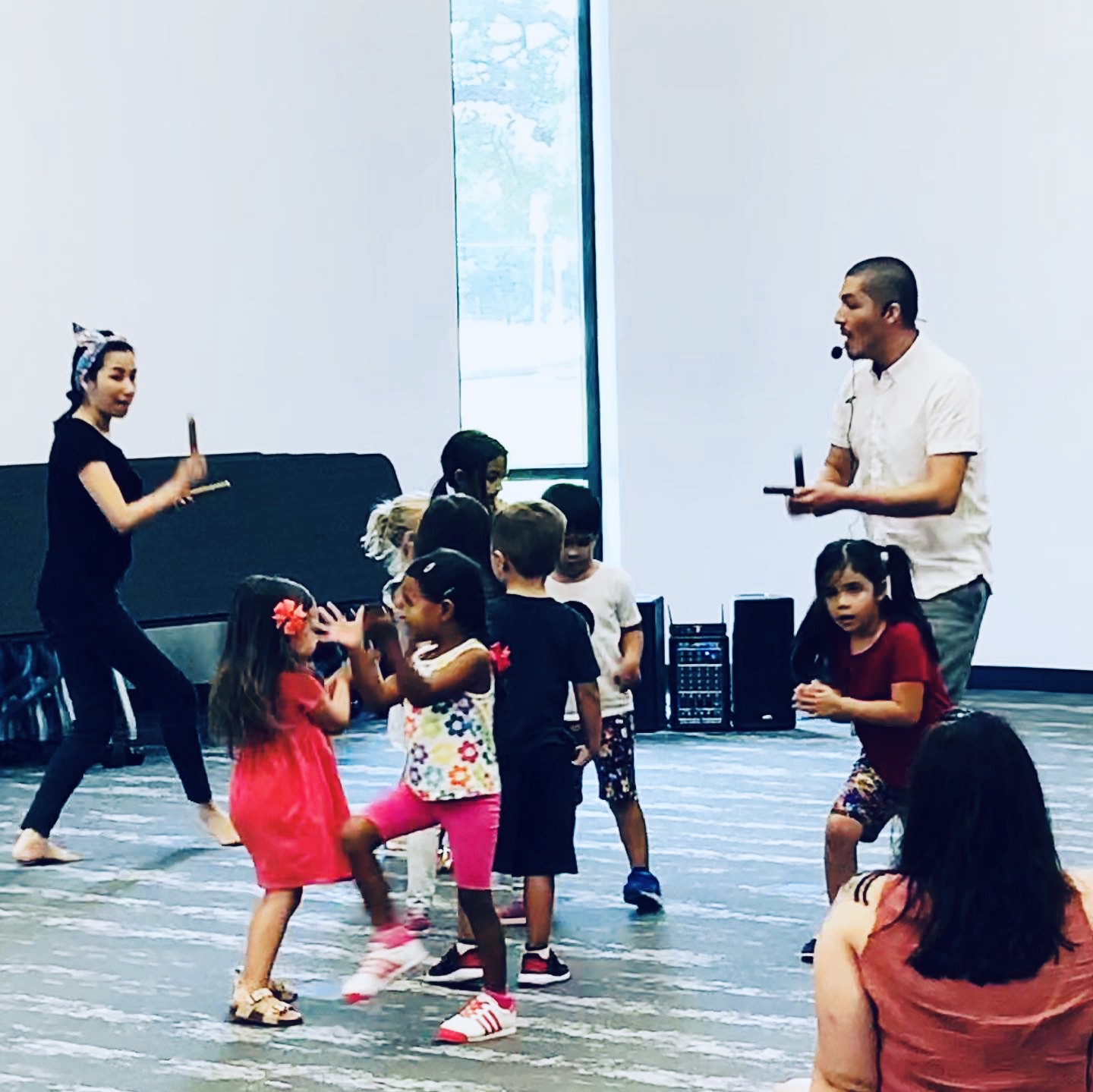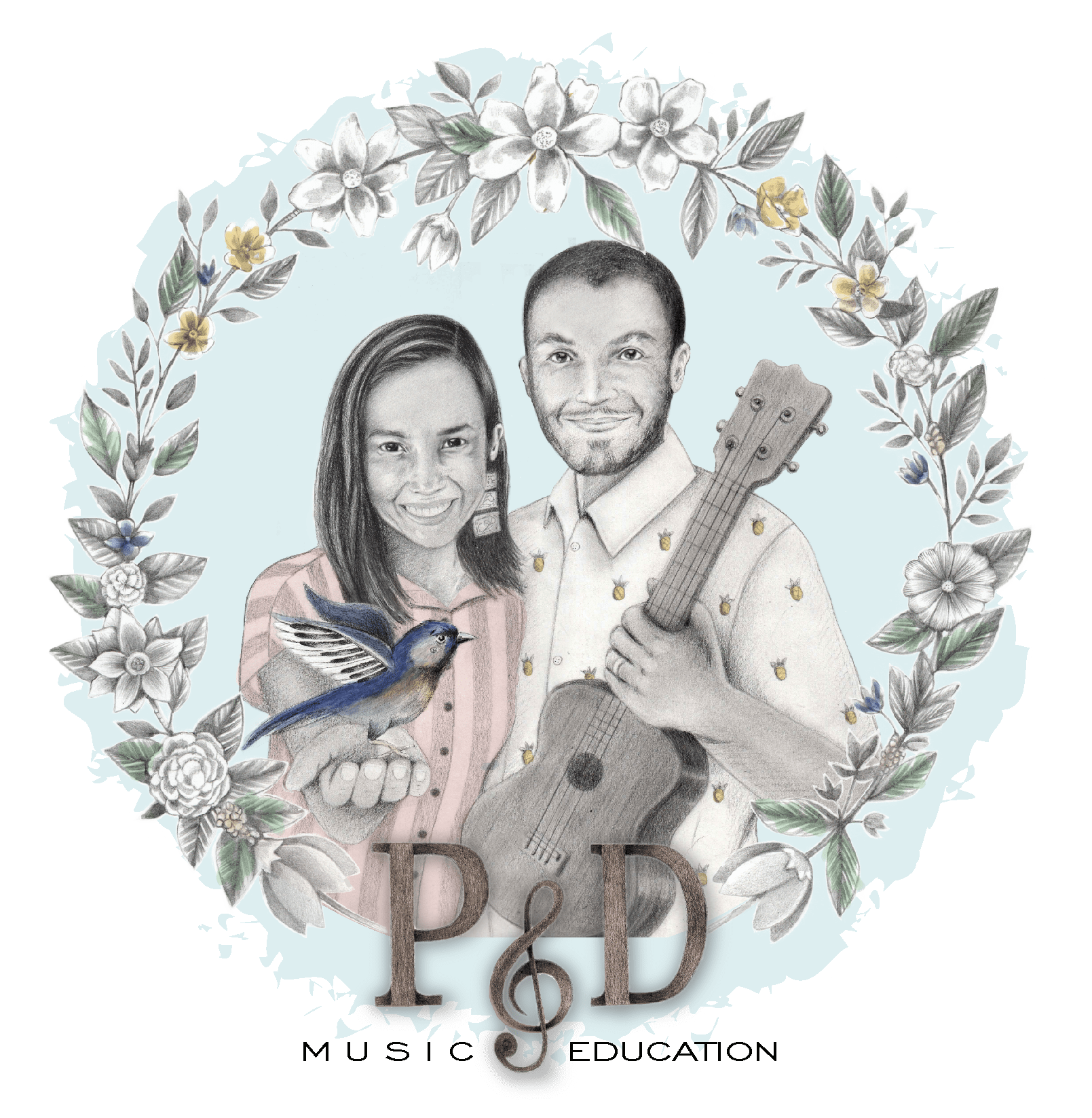Early Childhood Education
“Before children speak, they sing. Before they write, they paint. As soon as they stand, they dance. Art is the basis of human expression”
– Phylicia Rashad

How P&D deliver
Through joyful activities, including circle games, creative movement, singing, doing finger plays, lap games and playing instruments, we stimulate and strengthen all areas of children’s development. The same activities allow children to be exposed to different musical elements.
Dancing to a piece, voice exploration, playing an instrument, creating a new pattern or movement sequence and sharing ideas with the group create a path for experiencing music. Moreover, these activities nurture their well-being and the relationship between themselves, their parents, and their peers.
Based on the Orff-Schulwerk approach (Music, Movement and Speech) and the knowledge that we constantly acquired while working with young children, our sessions are designed according to the skills and needs of the participants.
Areas of Development
Social and Emotional: Self-control, interacting with others and helping themselves.
Physical: Gross motor skills which involve larger muscles like arms and legs. Fine motor skills which involve the smaller muscles in the fingers, toes, eyes and other areas.
Cognitive and Intellectual: Child’s ability to learn and solve problems. Memory and concentration skills.
Language and Speech: Child’s ability to understand the spoken word and express verbally.
Sensory Processing: The brain’s ability to receive, interpret, and effectively use information provided by all the senses: vision, hearing, taste, smell, touch, and the detection of movement (vestibular and proprioceptive systems).
Elements of Music
Beat: Pulse
Rhythm: The sequence and patterns that include sound and silence
Tempo: Fast/slow
Pitch: High/low sounds
Dynamics: Loud/soft/getting louder/ getting softer
Timbre: The quality of sound
Form: The structure of a piece
Class Objectives
To make music together
To promote tuneful singing
To respond to fast/slow, loud/soft, short/long, high/low
To strengthen listening, cognitive and fine/gross motor skills
To stimulate creative movement and dance
To explore different ways of expression
To play and feel a steady beat
To be exposed to music from different cultures and styles
Our main goal is not technical mastery but instead to make sure every participant feels delighted, happy and engaged during the process. This journey can get started as young as a few months old and can go until the child is ready for further music development on an instrument (usually at 6 years of age). By this time, the musical, intellectual, physical and emotional elements will naturally come from within to the instrument and not the other way around.
The capacity of understanding the complexity of music plus the concentration, discipline and satisfaction that it implies, is an invaluable asset towards any future professional development.
Digital Library
We have created a digital video library as a resource for parents/caregivers at home. These videos were available to those families registered in our online classes during the pandemic. Our goal is to present you with songs, rhymes, bounces, tickles, etc. that are appropriate for young children. These activities encourage singing and movement while strengthening the bond between you and your child. Click on the book you would like to play!
Parents/Caregivers
You are encouraged to sing, dance, play and explore along with your children. Many parents feel they are not equipped with the necessary skills to interact with their child through music. However, as said by Julie Wylie, “a simple song sung unprofessionally but lovingly to a child sitting on a parent’s knee reaches more deeply into the child’s consciousness than the voice of a singer on a cassette or CD.”
Through these activities you will enhance your own musical abilities, gain tools and learn games that will support your child. You are the most important person in your child’s life and it is through you that the learning starts.
